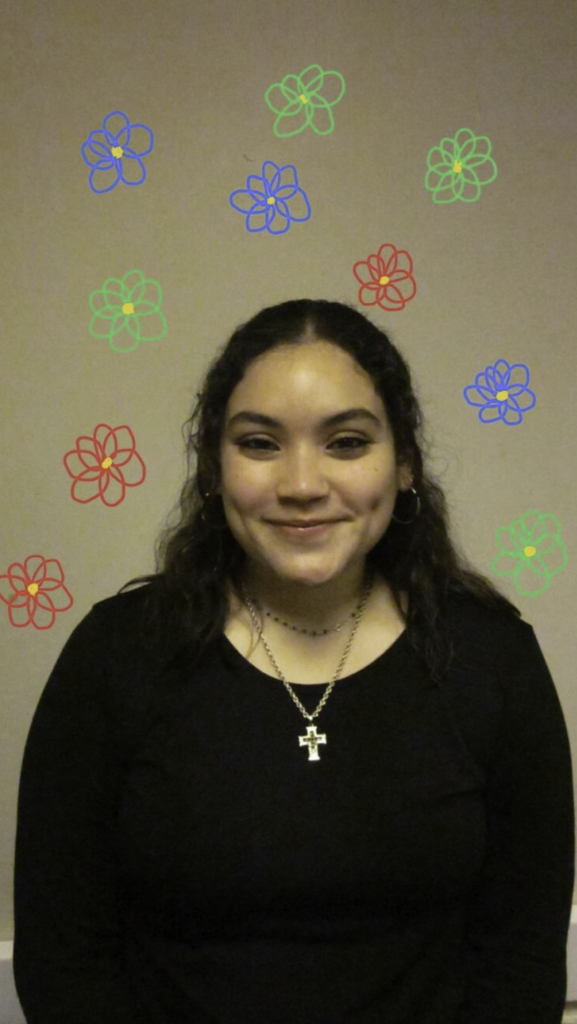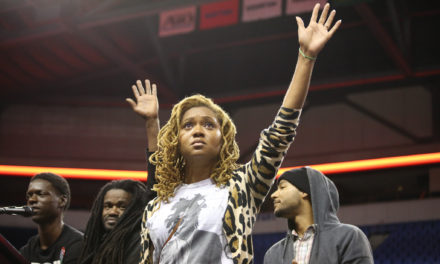When I reunited with my sister this winter break, the first thing she pointed out, after a warm meeting at the airport, was that my accent in English had changed. I’ve always had an accent, with Spanish being my first language, but this time around, she couldn’t recognize my tone.
“Have you forgotten you are Latina?” she asked.
When my sister noticed I was pronouncing my T’s differently, I knew my friend Vedika was inadvertently to blame.

Courtesy of Opinion Staff/Headshot of Staff Writer Sara Pérez
Vedika has been my steadfast friend since our first semester which we both navigated remotely — her from India and I from Nicaragua. Our daily, nonstop conversations, bridging continents and cultures, cemented our friendship while subtly influencing my accent. For me, having a different, new accent symbolized adaptation and growth. In Nicaragua, everything is small and homogenous — everyone I knew shared my ethnicity and had similar backgrounds. Upon coming to Emory University, I became part of a strikingly-different community where diversity is not just present, but it is celebrated as a core value. Here, we are interconnected by our shared enrollment at Emory, but we all have different stories, backgrounds and customs.
My time at Emory has taught me that identity is not a static monolith but a mosaic of experiences and interactions. Before coming to college, I promised myself that I would make an effort to immerse myself in new cultures, yet I did not anticipate how deeply I would connect with others’ stories. My friends Vedika and Mudita helped me discover the rich flavors of Indian cuisine while bonding over our mutual experiences growing up with big families and shared households — a sentiment echoed from opposite ends of the globe. I remember the day we marveled over considering our first cousins as siblings, given we grew up in the same house. They stared at me startlingly, explaining that they had the same relationship with their family.
With my friend Camilla, I connected over the similarities and differences of attending a Catholic high school, bridging the gap between Atlanta and Managua, Nicaragua, and reminding me of the universality of our experiences.
Then there is Camila, who spent most of her life in Brazil. Our bond was rooted in a shared upbringing in Latin America, which inspired our passion for law and politics and a love for Latino dishes, from Peruvian ceviche to Brazilian sushi. We experienced a serendipitous revelation when we found out we both attended the same debate conference in Cartagena, Colombia, narrowly missing each other until fate brought us together at Emory. This moment was another reminder of how interconnected our lives were, even before we met, and how Emory served as a nexus for our paths to finally cross.
Each of my friends acts as a mirror, reflecting the parts of me I knew and unveiling the parts I have yet to explore.

Ha-tien Nguyen/Podcast Editor
The “Emory Bubble” often feels like a haven, easily insulating us from the realities beyond campus. As graduation looms, I reflect on the nuances that marked my college career. These reflections bring me back to the moment of reunion with my sister, when the change in my accent — unknown to me until she pointed it out – served as a tangible reminder of my transformation. This change, a direct result of the countless conversations and shared laughter with my friend Vedika, epitomizes the profound impact of my Emory experiences. It is specifically through the art of conversation that my speech began to transform, combining both our unique intonations.
My craving for a chole roll makes me think of my friends Vedika and Mudita. When I reminisce about my high school experience, I hear the echoes of my friend Camilla’s laughter. When I overhear Latinx Uber drivers gossiping, my friend Camila comes to mind.
I am forever grateful to Emory for bringing me close to people whom I would not have met otherwise, bursting my own bubble. Now, I appreciate the bubbles within Emory not as barriers but as bridges to deeper understanding and connection, fostering an environment where diverse narratives thrive and my accent is subject to change as I continue to grow.
Sara Pérez (24C) is from Managua, Nicaragua.
Sara Perez (24C) is from Managua, Nicaragua, majoring in QSS on the Political Science track. Outside of the Wheel Editorial Board, you can catch her trying new coffee recipes and rewatching the same shows for the nth time.





